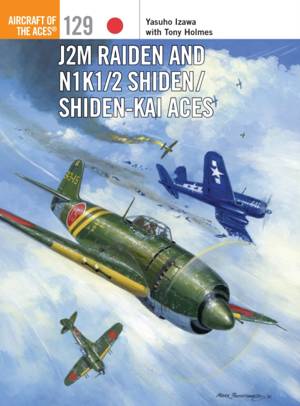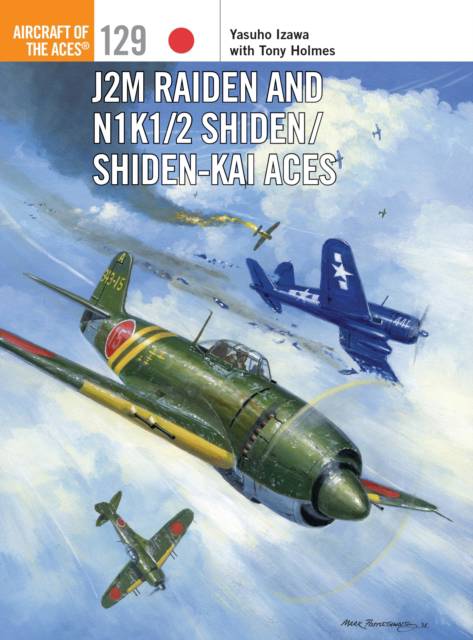
- Retrait gratuit dans votre magasin Club
- 7.000.000 titres dans notre catalogue
- Payer en toute sécurité
- Toujours un magasin près de chez vous
- Retrait gratuit dans votre magasin Club
- 7.000.0000 titres dans notre catalogue
- Payer en toute sécurité
- Toujours un magasin près de chez vous
Description
Although seen as a replacement for the A6M Zero-sen carrier-based fighter, the Mitsubishi J2M Raiden was actually designed as a land-based naval interceptor optimized for speed rather than maneuverability. Engine cooling problems for its Mitsubishi Kasai 23 engine and airflow and flight control issues plagued the Raiden's development, but despite these production delays, aces Sadaaki Akamatsu Yoshihiro Aoki, Susumu Ito and Susumu Ishihara all claimed significant scores in the Raiden.
Kawanishi's N1K family of fighters were privately developed by the manufacturer from the N1K Kyofu floatplane fighter. Again plagued by structural and engine maladies, the N1K1-J Shiden eventually entered front line service in time to see considerable action in the doomed defense of the Philippines in October 1944. Despite suffering heavy losses, the units equipped with new fighter proved that the N1K could more than hold its own against P-38s and F6Fs. The improved N1K2-J Shiden-KAI started to reach the front line by late 1944--in time to defend the Home Islands. Here, it proved to be the best IJN fighter of the war.Spécifications
Parties prenantes
- Auteur(s) :
- Editeur:
Contenu
- Nombre de pages :
- 96
- Langue:
- Anglais
- Collection :
- Tome:
- n° 129
Caractéristiques
- EAN:
- 9781472812612
- Date de parution :
- 19-04-16
- Format:
- Livre broché
- Format numérique:
- Trade paperback (VS)
- Dimensions :
- 180 mm x 244 mm
- Poids :
- 204 g

Les avis
Nous publions uniquement les avis qui respectent les conditions requises. Consultez nos conditions pour les avis.






